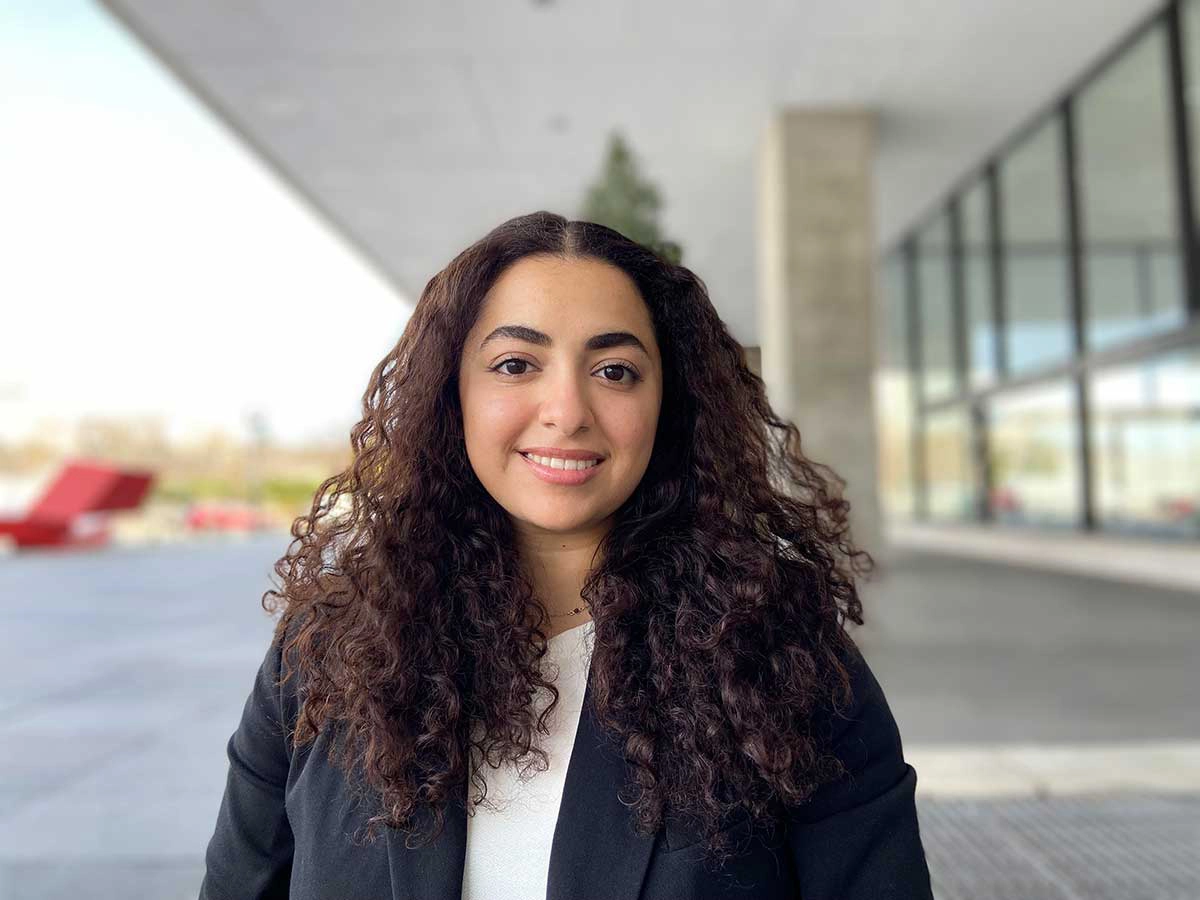ORISE fellow hones science communication skills through BARDA fellowship
Meet Shiraz Belblidia

Shiraz Belblidia is an ORISE fellow in the Office of the Director at the Biomedical Advanced Research and Development Authority.
Once a week while Shiraz Belblidia was in elementary school, a paleontology professor from a nearby college would enter her class and answer all the questions she and her classmates could think of. “He firmly believed that no question was too silly to be answered, and encouraged us as we tried to out-hypothesize each other,” said Belblidia.
The curiosity she fostered during her elementary school experience led her to pursue an undergraduate degree in biochemistry from Barnard College of Columbia University. Belblidia’s desire to understand the full scope and impact of biomedical research upon society motivated her to continue her education within an interdisciplinary master’s program at Georgetown University, where she was exposed to several global health topics including epidemiology, policy and governance. She graduated Georgetown University with a master’s degree in biomedical science policy and advocacy.
Belblidia is continuing her scientific pursuits within the Biomedical Advanced Research and Development Authority (BARDA) Research Participation Program, a fellowship hosted by an interagency agreement between the Department of Health and Human Services (DHHS), Office of the Assistant Secretary for Preparedness and Response and the U.S. Department of Energy (DOE).
As a current participant, Belblidia is a fellow in the Office of the Director, which engages in organization-wide operations and interfaces with each division and their endeavors. Because Belblidia’s fellowship is not assigned to a specific division, she has had the opportunity to collaborate with many groups, such as the Operations Team, Communications Team, Diversity, Equity and Inclusion Team and many more.
Under the guidance of her mentors Ashley Cecere, special assistant to the director, and David Howell, biologist, Belblidia has contributed to an outreach initiative for BARDA’s SPRINT (Science, Preparedness and Response, Innovations and New Technologies). This program serves as a resource for students from economically and racially diverse schools ranging from middle school to undergraduate level. Belblidia took the idea of the SPRINT program from concept to reality by engaging local schools and establishing opportunities for students to learn about potential career opportunities, fields of study and challenges individuals have overcome to get to where they are in their careers.
During her fellowship, Belblidia has honed her communication skills, project management skills and her ability to translate the mission of BARDA to real-world applications. “These are all incredibly important skills to me as a scientist and communicator, because I know that science does not and cannot exist in a vacuum. It’s therefore our (the scientific community’s) responsibility to make our work easily accessible to society,” she said.
Belblidia also stated that her time as a BARDA fellow has solidified her desire to use her extensive biomedical knowledge to approach global health issues. She has been inspired by the passionate scientists she is surrounded by. “This has been an incredible learning experience for me and to be able to not only witness, but participate in the processes that I had studied is honestly very empowering,” she said.
Upon completion of her fellowship, Belblidia will attend New York University’s Vilcek Institute of Graduate Biomedical Sciences and begin doctoral studies. She will be joining the microbiology, immunology and infectious disease training discipline. Her ultimate goal is to use the expertise she gains to participate and advocate for consequential biomedical research to promote global health concepts in the public, political and legislative arenas.
The BARDA Research Participation Program is funded by DHHS and is administered through the U.S. Department of Energy’s (DOE) Oak Ridge Institute for Science and Education (ORISE). ORISE is managed for DOE by ORAU.
